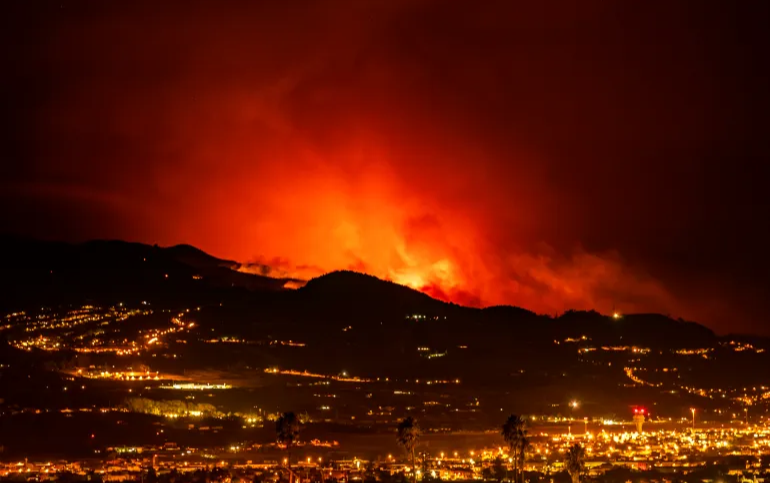
Madrid, August 20 (RHC)-- Thousands of residents from Tenerife in Spain’s Canary Islands have been evacuated as a wildfire authorities deemed “out of control” rages on for a fourth day. The Canary Islands emergency services said more than 26,000 people had been evacuated by Saturday afternoon, according to provisional estimates, a sharp rise from 4,500 on Friday. Some 11 towns have now been affected.
The Atlantic island is home to about one million people and is also a popular tourist destination. The seven-island archipelago is located off the northwest coast of Africa and southwest of mainland Spain. At their nearest point, the islands are 100km (60 miles) from Morocco.
Fierce flames lit up the night sky overnight and on Saturday helicopters were seen dropping water on areas close to homes where smoke billowed into the air. Some 5,000 hectares (12,000 acres) have been burned so far with a perimeter of 50km (30 miles).
The fire was at a scale never been seen before in the Canary Islands, Tenerife Council President Rosa Davila told reporters. She said the priority was to “protect people’s lives.” The blaze has not destroyed any homes so far, she added, citing the fire brigade.
The island’s popular tourist areas have so far been unaffected and its two airports have been operating normally. The blaze broke out on Wednesday in a mountainous national park around the Mount Teide volcano – Spain’s highest peak – amid hot and dry weather.
The fire is located in a steep and craggy mountain area with pine trees, with several municipalities on its flanks. Access for firefighters is extremely difficult.
The Canary Islands have been in drought for most of the past few years, just like most of mainland Spain. The islands have recorded below-average rainfall in recent years because of changing weather patterns impacted by climate change.
Scorching heat and dry weather this year have contributed to unusually severe wildfires in Europe, including in Spain’s La Palma Island in July, and Canada. Blazes on Hawaii’s Maui Island earlier this month killed more than 110 people and wrecked the historic resort city of Lahaina.
Scientists have said climate change has led to more frequent and more powerful extreme weather events.
European Union officials also blamed global warming for increasing frequency and intensity of wildfires in Europe, noting 2022 was the second-worst year for wildfire damage on record after 2017.

